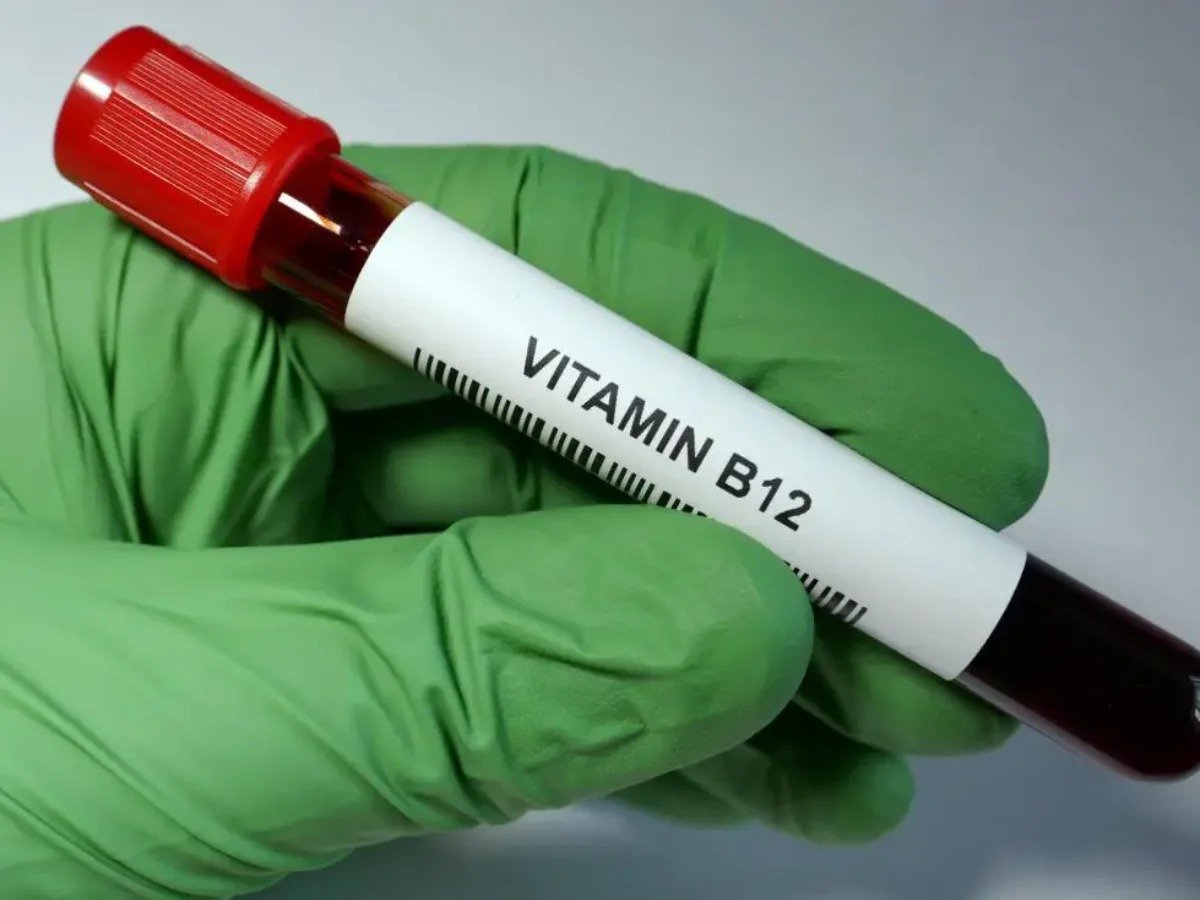The Vitamin B12 Test is a simple blood test used to measure the levels of Vitamin B12 in your body. Vitamin B12 is essential for red blood cell production, nerve function, and DNA synthesis. A deficiency can lead to severe health issues if left undetected. In this article, we’ll explore why this test is important, the testing process, and its significance for overall health.
What is the Vitamin B12 Test?
The Vitamin B12 Test measures the concentration of Vitamin B12 in the blood. This test helps detect deficiencies or excess levels that may indicate underlying health issues such as anemia, neurological disorders, or malabsorption syndromes.
Why is Vitamin B12 Important?
-
Red Blood Cell Production
- Vitamin B12 is vital for producing healthy red blood cells.
-
Nervous System Function
- Supports proper functioning of the brain and nerves.
-
DNA Synthesis
- Plays a critical role in creating and repairing DNA.
-
Energy Production
- Converts food into energy, reducing fatigue.
-
Heart Health
- Lowers homocysteine levels, reducing the risk of heart disease.
Why is the Vitamin B12 Test Needed?
-
Persistent Fatigue
- Unexplained tiredness may indicate a deficiency.
-
Neurological Symptoms
- Tingling, numbness, or balance issues may result from nerve damage due to low Vitamin B12 levels.
-
Digestive Disorders
- Conditions like Crohn’s disease or celiac disease can cause poor Vitamin B12 absorption.
-
Vegetarian or Vegan Diet
- Vitamin B12 is mainly found in animal-based foods, putting vegetarians and vegans at risk.
-
Age-Related Deficiency
- Older adults often have reduced ability to absorb Vitamin B12.
Symptoms of Vitamin B12 Deficiency
- Extreme fatigue
- Weakness and dizziness
- Pale or yellowish skin
- Memory issues or cognitive decline
- Mood swings or depression
- Tingling or numbness in hands and feet
- Breathlessness
- Anemia
How to Prepare for the Vitamin B12 Test?
-
Fasting May Be Required
- Some labs recommend fasting for 6-8 hours before the test.
-
Inform About Medications
- Certain drugs, like antacids or metformin, may affect results.
-
Stay Hydrated
- Drink water to make blood collection easier.
Procedure for the Vitamin B12 Test
-
Blood Sample Collection
- A small blood sample is drawn from a vein, usually in the arm.
-
Laboratory Analysis
- The sample is analyzed to measure Vitamin B12 levels.
-
Results
- Reports are typically available within 1-2 days.
Understanding Test Results
-
Normal Range
- The normal range for Vitamin B12 levels is 200–900 pg/mL.
-
Low Levels
- Indicate a deficiency caused by poor diet, malabsorption, or medical conditions like pernicious anemia.
-
High Levels
- Rare but may indicate liver disease or excessive supplementation.
Causes of Vitamin B12 Deficiency
-
Dietary Deficiency
- Common in vegetarians, vegans, and people with poor diets.
-
Pernicious Anemia
- An autoimmune condition that reduces Vitamin B12 absorption.
-
Digestive Disorders
- Conditions like IBS or Crohn’s disease can lead to malabsorption.
-
Medications
- Antacids, proton pump inhibitors, and metformin can interfere with absorption.
-
Alcoholism
- Chronic alcohol use depletes Vitamin B12 stores.
Risks of Untreated Deficiency
- Neurological disorders like neuropathy
- Severe anemia
- Cognitive decline or dementia
- Increased risk of heart disease
- Poor pregnancy outcomes in severe cases
Treatment for Vitamin B12 Deficiency
-
Dietary Changes
- Include Vitamin B12-rich foods such as meat, fish, eggs, and dairy products.
-
Supplements
- Oral or sublingual supplements may be prescribed.
-
Injections
- Vitamin B12 shots are recommended for severe deficiencies or malabsorption cases.
-
Monitor Underlying Conditions
- Treat digestive disorders or other medical issues affecting absorption.
Benefits of Regular Testing
-
Early Detection
- Identifies deficiency before severe symptoms develop.
-
Tailored Treatment
- Ensures proper management based on individual needs.
-
Improved Health
- Restores energy, cognitive function, and overall well-being.
-
Prevention of Complications
- Reduces the risk of anemia and nerve damage.
Cost of the Vitamin B12 Test
The cost of a Vitamin B12 Test varies based on the lab and location. On average, it ranges from ₹400 to ₹1,500. Some labs offer home sample collection for added convenience.
FAQs About the Vitamin B12 Test
1. Is the test painful?
The procedure involves a simple blood draw and is only mildly uncomfortable.
2. Can I take the test if I’m on supplements?
Yes, but inform your doctor as supplements may affect results.
3. How often should I get tested?
This depends on your health status and risk factors. Annual testing is common for at-risk individuals.
4. Can a deficiency be cured?
Yes, with proper diet and supplementation, Vitamin B12 levels can be restored.
5. Is the test covered by insurance?
Many health insurance plans cover the cost of diagnostic blood tests.
Conclusion
The Vitamin B12 Test is crucial for identifying deficiencies and ensuring optimal health. Regular testing helps prevent complications like anemia and nerve damage. If you experience symptoms or belong to an at-risk group, consult your doctor about getting tested. Taking proactive steps can safeguard your energy, brain function, and overall well-being. Make your health a priority today!
